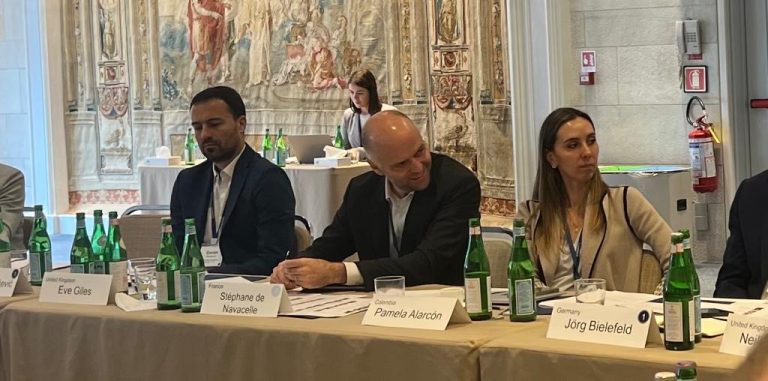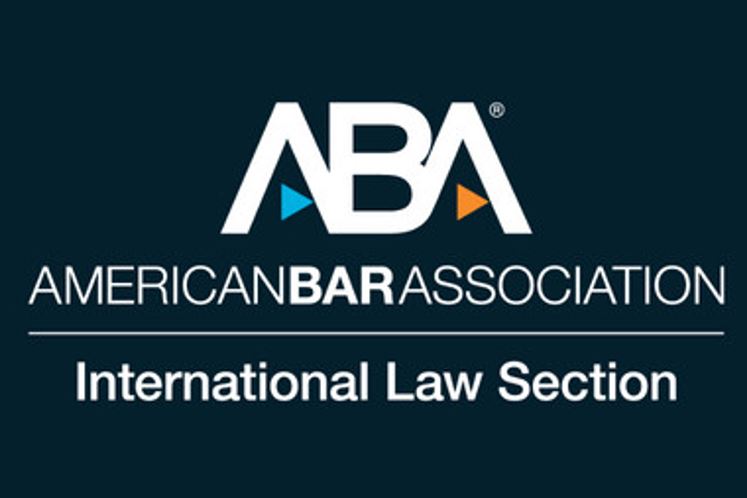I. Can allegations of corruption serve as a bar to jurisdiction of arbitral tribunals or admissibility of claims?
For an arbitral tribunal to have jurisdiction to adjudicate upon a dispute or a claim, the subject matter of the dispute must be arbitrable. The Indian Arbitration and Conciliation Act, 1996 (Indian Arbitration Act) does not provide a list or description of disputes that are not arbitrable. However, generally the courts consider disputes concerning rights in personam (i.e., rights against only specific individuals) as arbitrable. On the other hand, disputes regarding rights in rem (i.e., rights against the world at large) are required to be adjudicated by the courts and public tribunals. Though there are no cases that specifically deal with the issue of arbitrability of corruption (i.e., bribery of a public servant), corruption is often considered a non-arbitrable issue since it is a criminal offence under Indian law.
Based on cases concerning arbitrability of fraud, it is unlikely that mere allegations of corruption would bar the jurisdiction of arbitral tribunals or admissibility of claims. Simple allegations of corruption that touch upon the internal affairs of the party inter se or have no implication in the public domain may still be arbitrable. An arbitral tribunal’s jurisdiction may be barred only in cases where very serious allegations of corruption are raised such that (i) the arbitration clause/agreement itself cannot be said to exist and it is held that the party against whom breach is alleged cannot be said to have entered into the agreement relating to arbitration at all, or (ii) allegations are made against the State or its instrumentalities of arbitrary, fraudulent, or mala fide conduct, thus necessitating the hearing of the case by a court.
In any event, Indian arbitration laws are modelled on the principles of severability and compétence-compétence. Consequently, the arbitral tribunal is competent and authorized by law to rule on its jurisdiction where issues of arbitrability of corruption-related issues are raised – though courts may reconsider such issues at the post-award stage. Further, if courts are faced with these issues at the time of reference of a dispute to arbitration, the courts can examine the non-arbitrability of a claim on an extremely limited basis, and refuse arbitration when the matter is manifestly and ex facie “non-arbitrable”. Other than in exceptional cases, Indian courts are expected to refer the matter to arbitration wherein the arbitral tribunal would decide on any challenges to its jurisdiction.
II. Can allegations of corruption affect the validity of an arbitral award?
Under Indian law, setting aside or enforcement of an arbitral award is determined based on a host of grounds such as validity of the arbitration agreement, arbitrability of the dispute, the scope of arbitration, procedure followed by the arbitral tribunal, and consonance of the arbitral award with the public policy of India. Amongst others, allegations of corruption can also affect the validity and enforcement of an arbitral award.
If the allegations of corruption are of such a serious nature that make the dispute non-arbitrable, the validity of the arbitral award would also get affected on this count and Indian courts could set aside or refuse enforcement of such awards. Further, under the Indian Arbitration Act, if the “making of an award was induced or affected by” corruption, the award is considered to be conflicting with the public policy of India and will be set aside/refused enforcement.
In the case of Devas Multimedia Private Limited v. Antrix Corporation Limited & Anr. (2023) 1 SCC 216 (Antrix Case), where issues of grave corruption were discovered only at the stage of challenge to the arbitral award (and not during the adjudication by the arbitral tribunal), the courts held that the award is induced or affected by corruption and was set aside. There are presently no cases where validity or enforceability of an arbitral award has been tested based on allegations of corruption raised before the arbitral tribunal.
III. In annulment or enforcement proceedings, can the court review the award and the merits to determine whether corruption or related offences affect the underlying dispute?
In proceedings for setting aside and enforcement of awards, it is a settled legal position that courts do not sit in appeal over the arbitral award. Therefore, typically courts cannot delve into the merits of the case, save in exceptional cases such as while dealing with issues of non-arbitrability, patent illegality of an award, infringement of public policy or violation of fundamental principles of justice. In the absence of any such exceptional case, the award must be considered only from limited perspectives as discussed in the response under Question 2.
In cases where courts are considering the effect of corruption or related offences on the dispute under arbitration, it is likely that they would be able to review the award and merits of the case – since in such cases issues such as non-arbitrability and infringement of public policy would usually be under consideration.
IV. Can courts review corruption allegations which have not been raised in the arbitration?
The courts can consider allegations of corruption not raised in the arbitration, where grave issues of non-arbitrability and conflict with public policy of India are concerned.
Consequently, allegations of corruption, if not raised in the arbitration, can be raised at the time of review of arbitral award in setting aside or enforcement proceedings, especially when they could not be discovered or were not discoverable at the time of arbitration proceedings. In the Antrix Case, the courts set aside the award on the basis of existence of corruption and fraud, even though such corruption and fraud were discovered after making of the award.
V. Do courts defer to the arbitral tribunal’s finding that no corruption acts were committed?
Indian courts usually defer to the arbitral tribunal’s findings on substantive issues unless examination of such issues is necessary to assess if grounds exist for setting aside or refusing enforcement of an arbitral award. Thus, if existence of corruption would affect the validity or enforceability of the arbitral award, Indian courts may independently assess this issue instead of deferring to the arbitral tribunal’s finding on it.
VI. Is there a standard of proof used by arbitrators and reviewing courts to assess the existence of corruption?
Arbitral proceedings essentially concern disputes which are civil in nature. The standard of proof required in civil and criminal cases is different under Indian law. In criminal cases a case must be proven beyond reasonable doubt. However, civil cases are decided on the basis of preponderance of probabilities, that is, a fact is said to be proved when it is believed to exist, or its existence is considered so probable that a prudent man would act upon the supposition that it exists. Hence, the arbitrators and reviewing civil courts decide issues of corruption on the basis of preponderance of probabilities.
We have not come across cases in public domain where issues of corruption have been considered/adjudicated in an arbitration in India. However, even in those cases, the arbitrators and the reviewing courts would have to adjudicate on issues relating to corruption (including the arbitrability of such issues) based on the test of preponderance of probabilities. Inference of probabilities is drawn from the materials produced by the parties as well as by reference to the circumstances upon which the concerned parties rely.
VII. Which method do arbitrators and reviewing courts employ to establish evidence of corruption?
An arbitral tribunal in an India-seated arbitration is not required to conform to the statutory provisions of evidence and procedure. The arbitral tribunals are, with the consent of parties or in the absence of any agreement between the parties, at liberty to decide upon the procedure for adjudication of dispute and have the power to determine the admissibility, relevance, materiality and weight of any evidence albeit preserving the principles of natural justice.
Thus, even in arbitrations involving issues of corruption, the arbitrators have the power to decide the preferred procedure for evidence, albeit within the contours of the terms of the arbitration agreement and any applicable institutional rules. Further, any evidentiary procedure should honour the principles of natural justice.
Typically, in arbitrations, evidentiary tools such as documentary records and oral testimonies are employed to establish that there is a strong probability of existence of a fact. Further, where facts are not directly proved, arbitrators may also infer facts from circumstantial evidence such that the circumstances exclude any other reasonable possibility.
In so far as the reviewing courts are concerned, they ascertain whether an award is to be set aside or enforced by assessing evidence gathered through the methods as mentioned above. Typically, the reviewing courts do not entertain fresh evidence, new evidence could be considered in exceptional circumstances such as where certain crucial facts relating to the subject matter of arbitration arise subsequent to the arbitral award being issued.
VIII. Are arbitrators seated in your jurisdiction bound by criminal proceedings on issues that could impact the underlying arbitration dispute?
Under Indian laws, findings of fact recorded by a criminal court do not have any bearing on civil cases and vice versa, especially since the standard of proof for civil and criminal cases are different. The same set of facts may lead to civil and criminal proceedings which can proceed parallelly and the pendency or disposal of one does not automatically affect the other.
Thus, arbitrators would not be bound by criminal proceedings (or their outcome) on issues that could impact the dispute under arbitration. However, if such proceedings before or findings by a criminal court are likely to affect the arbitrability of the dispute, it is likely that the arbitrator may have to consider such developments/outcome of a criminal proceeding.
IX. To what extent do they rely on or defer to findings from parallel criminal investigations?
As stated before, since civil cases have different standards of proof, the findings in parallel criminal cases do not automatically apply to arbitrations. However, where findings from a parallel criminal investigation or litigation may affect the arbitrability of a dispute or enforceability of an arbitral award (for example, if the finding would make the outcome of arbitration in conflict with public policy of India), in practicality, arbitrators are likely to consider or may even defer to the findings in such criminal case.
X. Are remedies available when an arbitral tribunal rules that there is no evidence of corruption but subsequently a criminal ruling decides otherwise?
If existence of corruption is established in a criminal ruling subsequent to issuance of an arbitral award, it would strengthen the case for setting aside / non-enforcement of the arbitral award if existence of corruption renders the dispute under arbitration non-arbitrable. Further, a finding on existence of corruption in a criminal proceeding may also suggest that the arbitral award is in conflict with the public policy of India, which is also a ground to set aside the award or refuse its enforcement.
In the Antrix case, the arbitration proceedings did not consider any issues of corruption. However, subsequently, fraud and corruption were discovered through parallel criminal investigations, and on this basis the arbitral award was set aside as being against the public policy of India.



